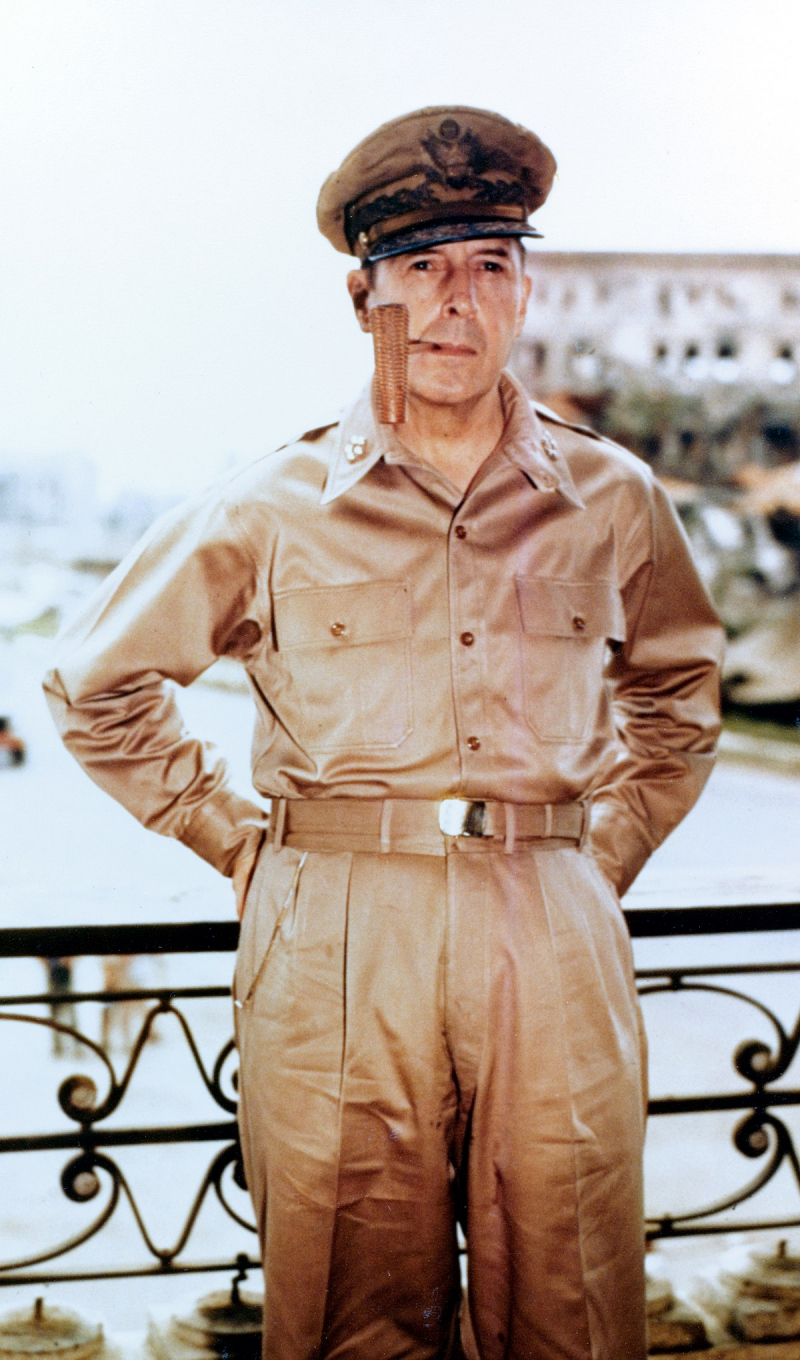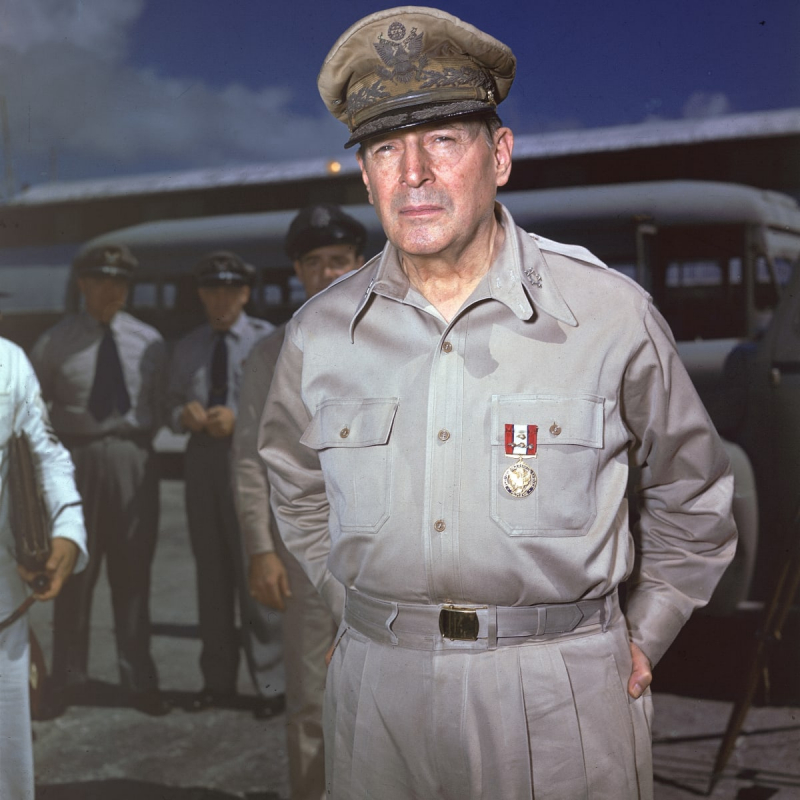General Douglas MacArthur of the United States (1880-1964)
Macarthur was the son of Mary Hardy and Civil War hero Arthur MacArthur Jr., who served as the commanding general of the American Army in the 1930s. He graduated as valedictorian from the West Texas Military Academy and was a crucial General in the fight against Japan. He worked as a second lieutenant in the U.S. Army Corps of Engineers after graduating. His notable performance in the Southwest Pacific Theater of World War 2 is what made him most well-known. His innovative tactical tactics saw the emphasis of military operations placed on the speed and mobility of amphibious and air forces operating across great distances. He was a dynamic commander.
As the service was established in the Philippines, he was able to visit several other Asian nations, including Japan, China, Indonesia, and others before departing for the United States and returning shortly after. MacArthur fought in the First World War, where he received several decorations and quickly advanced from major to colonel to brigadier general. During his time serving on the Western Front, he was twice nominated for the Medal of Honor, once given the Distinguished Service Cross, and seven times given the Silver Star.
Despite experiencing losses in the early phases of his involvement in World War II and being overpowered by the Japanese, MacArthur and his soldiers managed to escape and made a promise to return to liberate the Philippines after a victorious "island-hopping" campaign. He planned to assault lesser islands after skirting the key Japanese strongholds to get closer to the Japanese home islands. Finally, Japanese forces submitted to the American army under MacArthur in September 1945.
This gifted commander proved he was more than simply a general after the conflict. Macarthur handled the occupation of Japan, helped demolish its military, and helped the country's economy recover. On On April 10, 1951, a man who was superior to the Japanese Army in power, strength, and intellect announced his retirement. In his memoir "Reminiscences," he chronicled all of his experiences. He unquestionably possessed the physical and moral traits required for military service.














